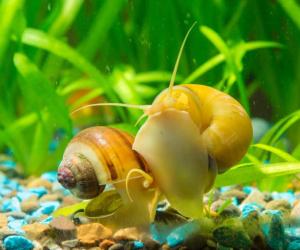10 Reasons to Avoid Putting Miracle-Gro Plant Food In Your Garden
Should you avoid using Miracle-Gro Plant Food? It’s no secret that everybody wants to have a luscious, healthy, and attractive garden. And, because we live in an instant society, gardeners and property owners are resorting to methods that deliver rapid results regardless of the long-term negative impact caused by putting one of these quick-fix solutions to your garden. Many zealous garden enthusiasts have turned to synthetic plant food products like Miracle-Gro.
Although the appeal of quick results is undeniable, we need to pause and consider the broader implications of using such synthetic fertilizers in our gardens. In addition, the production and use of synthetic fertilizers can contribute to environmental issues in the long run when excessive runoff of products like Miracle-Gro can pollute waterways and cause harm to ecosystems.
Let’s explore compelling reasons conscientious gardeners may want to think twice before reaching for Miracle-Gro plant food.
1. Chemical Residue Left in the Soil
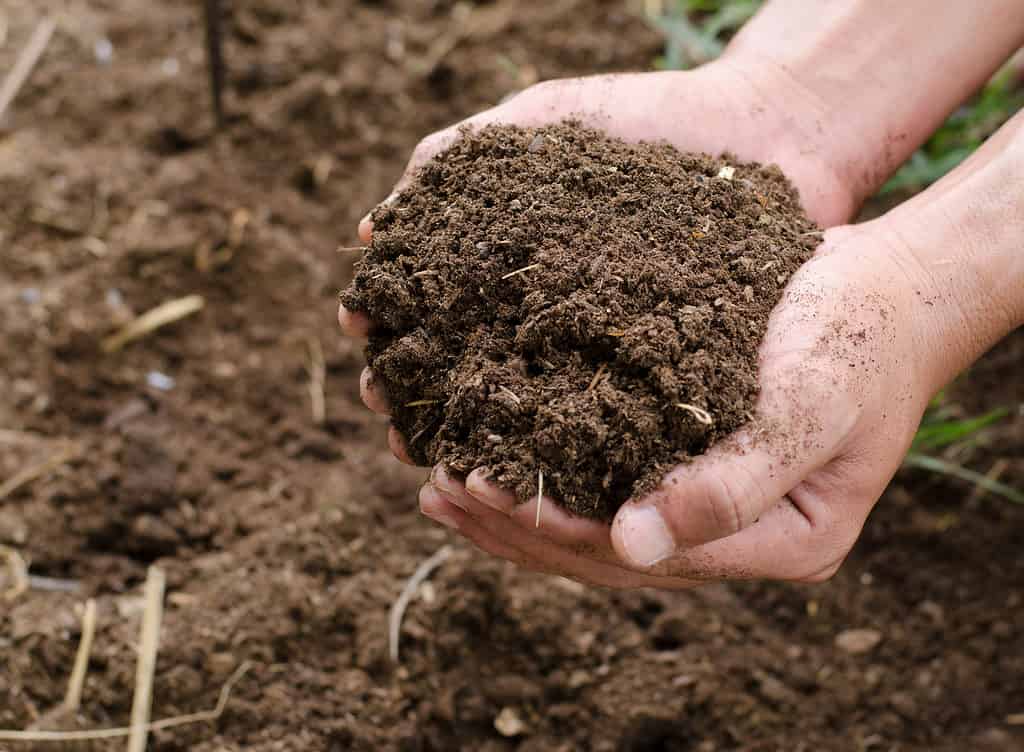
©Singkham/Shutterstock.com
Synthetic fertilizers like Miracle-Gro can leave chemical residues in the soil, which may harm beneficial soil organisms and affect the overall health of the ground over time. Furthermore, the indiscriminate use of synthetic fertilizers has a destructive impact on the soil’s natural bacterial and fungal systems.
2. Short-Term Growth Boost
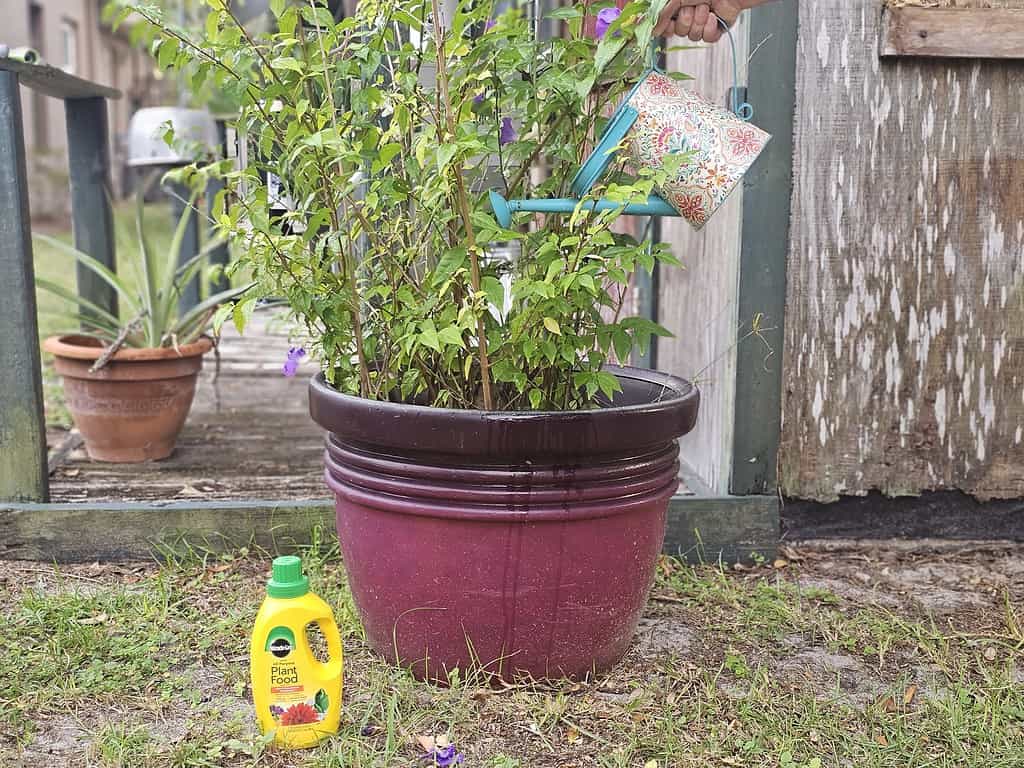
©A-Z-Animals.com/Larissa Smith
Miracle-Gro provides a quick nutrient boost to plants but doesn’t necessarily improve soil texture or plant health in the long run. These synthetic fertilizers dissolve easily in water, and when the nutrients are not all used by the plants, the excess nutrients can leach into important waterways. Many organic fertilizers improve soil structure and microbial activity, benefiting plants.
3. Environmental Impact and Concerns
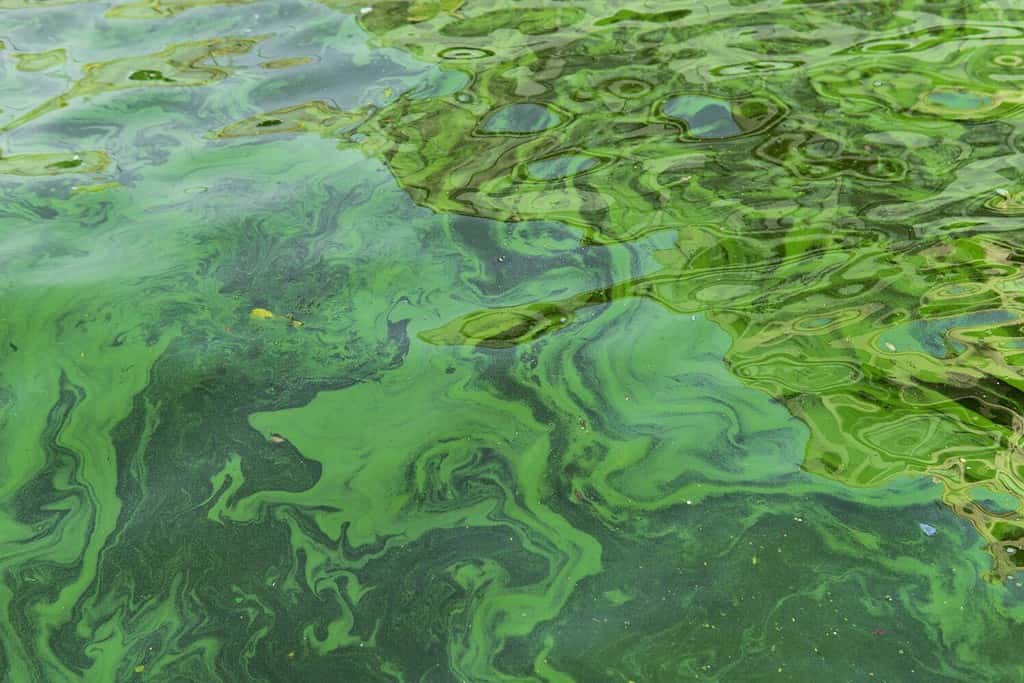
©Aleksandrkozak/Shutterstock.com
The production and use of synthetic fertilizers can contribute to environmental issues. Excessive runoff of chemical fertilizers can pollute waterways, leading to algal blooms and harm to aquatic ecosystems. Organic fertilizers and soil amendments are often seen as more environmentally friendly choices.
4. Nutrient Imbalance in the Soil
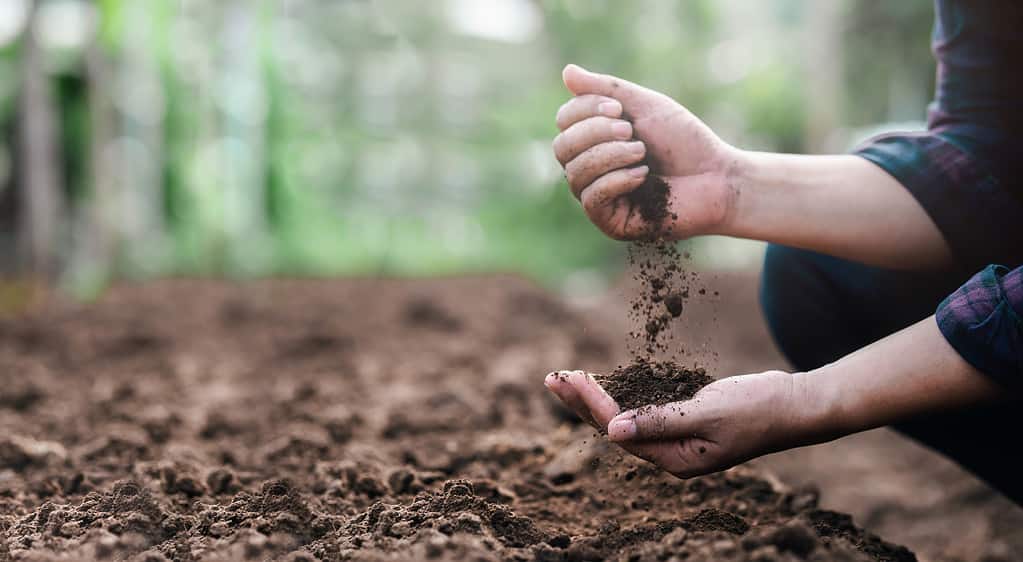
©Sakorn Sukkasemsakorn/iStock via Getty Images
One of the reasons to avoid using Miracle-Gro Plant Food is the nutrient imbalance it can create in the soil. Miracle-Gro is often a one-size-fits-all solution, but different plants have different nutrient needs. Using a balanced, all-purpose fertilizer like Miracle-Gro may not meet the specific requirements of certain plants. Overuse can lead to nutrient imbalances in the soil, and certain varieties of plants will not thrive in those areas.
5. Dependency on Synthetic Fertilizers
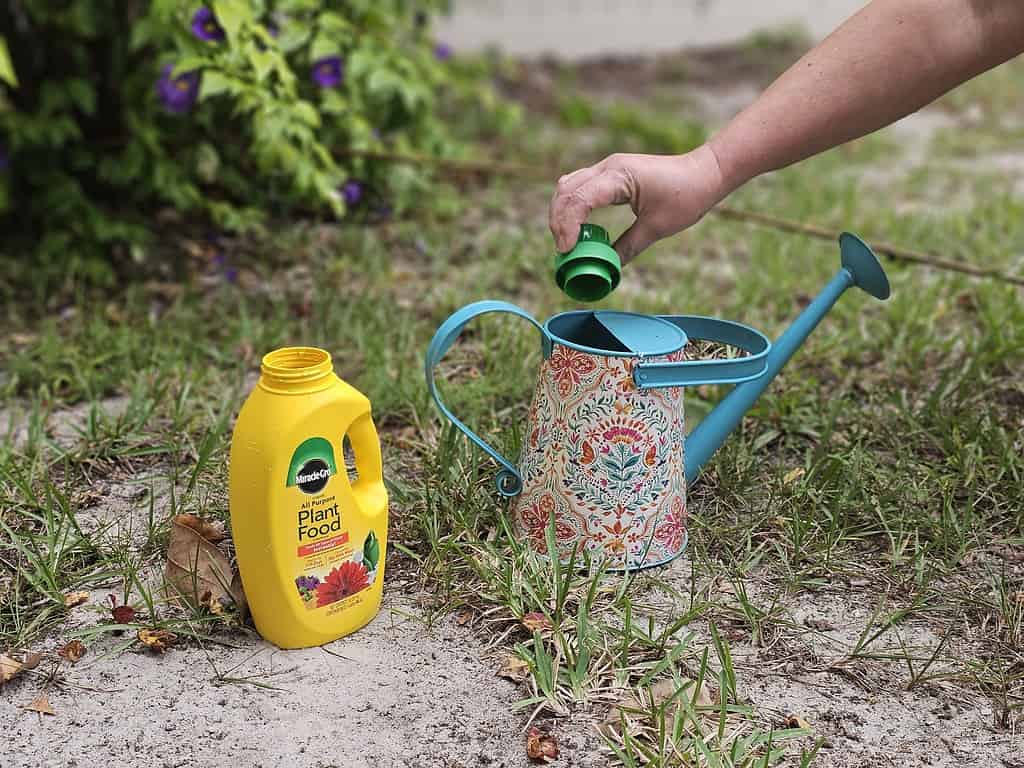
©A-Z-Animals.com/Larissa Smith
Regular use of synthetic fertilizers like Miracle-Gro can make plants dependent on artificial fertilizers. They may become less able to access nutrients naturally in the soil, making them more reliant on continued fertilizer application.
One can say that the ground becomes addicted and dependent on further application of inorganic fertilizers. The organic structure of the natural food systems is negatively impacted by the residue of the inorganic fertilizers left in the ground. The development of dead zones becomes the inevitable fate for the affected lands.
6. Chemical-Based Solutions
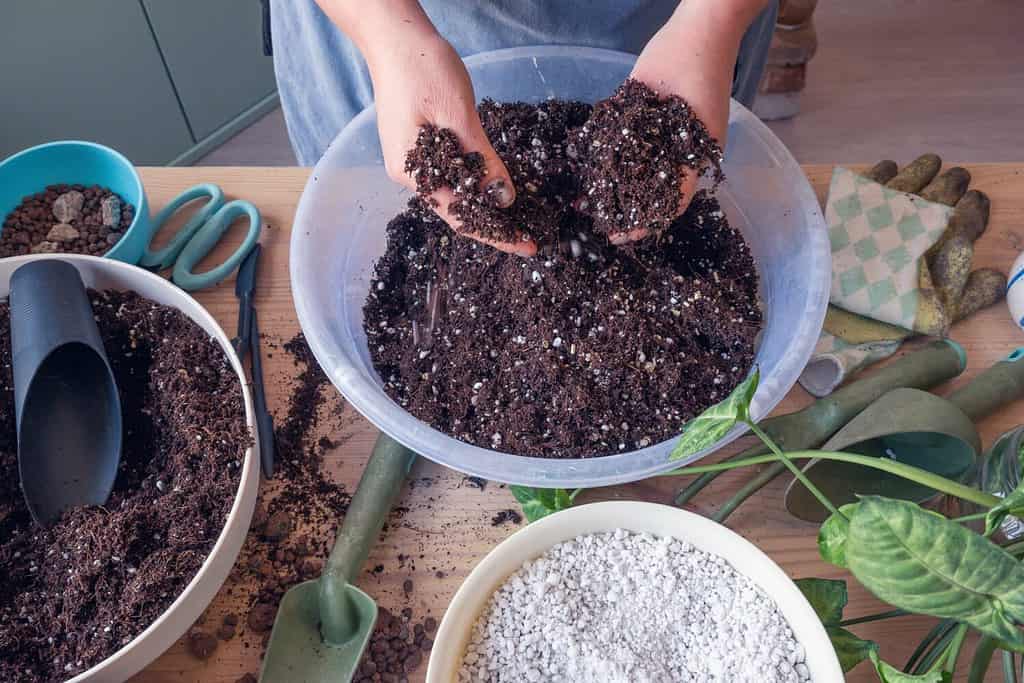
©Cem Selvi/Shutterstock.com
Miracle-Gro and similar synthetic fertilizers are chemical-based, which may contain high nitrogen, phosphorus, and potassium concentrations. On the other hand, some gardeners prefer to use organic or natural fertilizers to promote soil health and avoid the potential negative impacts of synthetic chemicals. In the long run, using organic and natural plant-feeding strategies presents a more sustainable solution for the benefit of future generations.
7. Salt Buildup in the Soil

©Miriam Doerr Martin Frommherz/Shutterstock.com
Synthetic fertilizers contain mineral salt ions that cause salt buildup over time, which can harm soil structure and reduce the soil’s ability to retain moisture. This can lead to an increase in water usage and lower plant resilience during droughts.
8. Risk of Over-Fertilization

©Elif Bayraktar/Shutterstock.com
Miracle-Gro and similar products can be easily over-applied, leading to too high nutrient levels in the soil. This level of nutrient excess can harm plants and increase the risk of nutrient runoff into water bodies.
When the growing plants do not fully utilize nitrogen and phosphorus, they can be lost from the farm fields and washed into waterways when it rains or snow melts. The excess nutrients can then leach through the soil and groundwater over time, negatively impacting air and downstream water quality and killing aquatic life like fish and other living organisms.
Harmful levels of algae can also develop, which can disrupt wildlife and lead to the development of toxins that are detrimental to humans.
9. Health and Safety Concerns
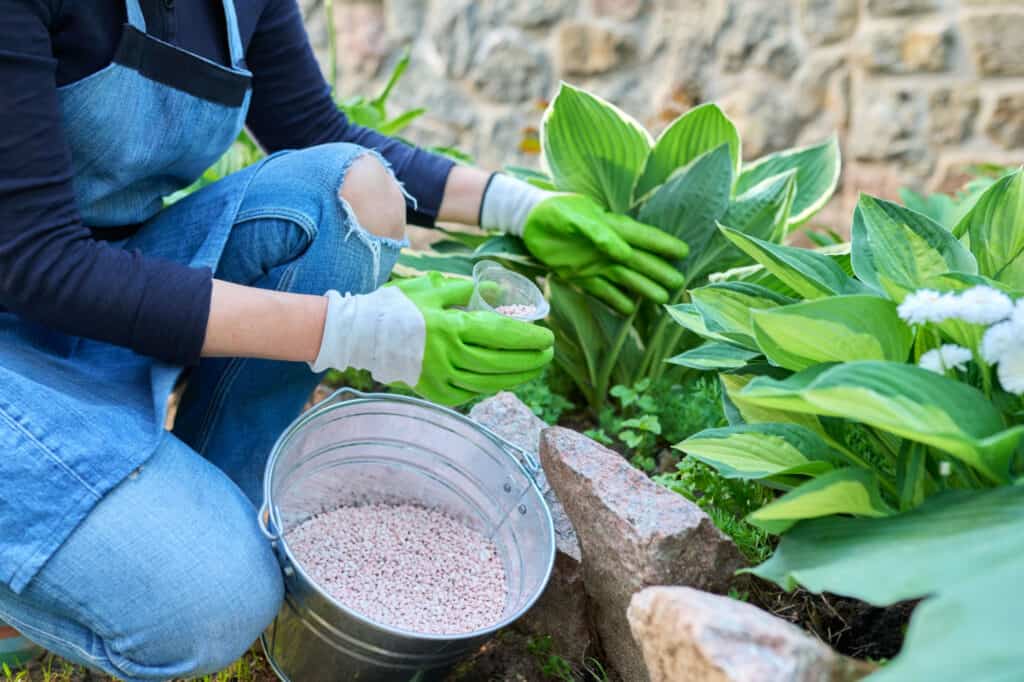
©VH-studio/Shutterstock.com
Synthetic fertilizers can pose health risks if not handled properly. They should be stored securely and used according to label instructions to avoid accidents or chemical exposure. Many are concerned about the potential health risks associated with synthetic fertilizers in handling and the residues they may leave on edible crops.
10. Cost Implications
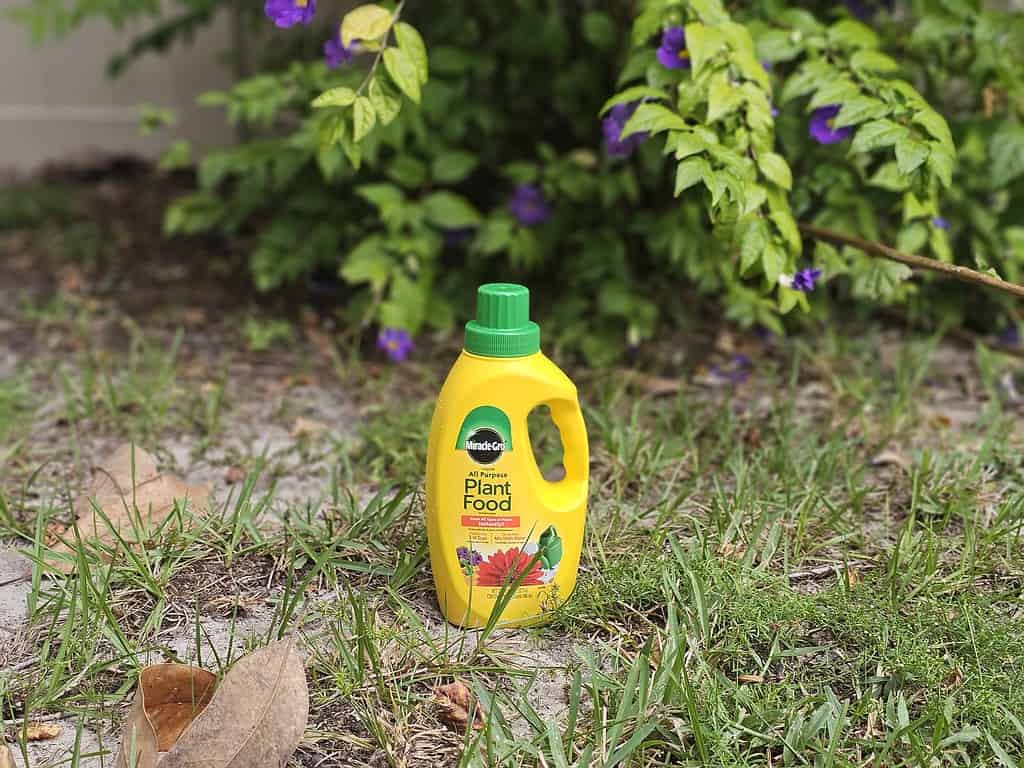
©A-Z-Animals.com/Larissa Smith
Synthetic fertilizers are cheaper per pound in comparison to their organic counterparts. Still, the negative impact of the inorganic potions has a costly impact on the environment and public health. Organic methods may require more effort initially but are cost-effective in the long run with a positive environmental impact. Liquid synthetic fertilizers only last 1-2 weeks, but organic fertilizers can last 2-4 weeks.
Final thoughts
There will always be some people who will opt for the short-term gain and convenience of synthetic fertilizers at the expense of our ecosystem, future food production, and public health sustainability.
Ultimately, whether to use Miracle-Gro or other synthetic fertilizers in your garden is a matter of conscience, gardening philosophy, and environmental stewardship. Others will take the responsible route by following a more natural and long-term beneficial approach to serving future generations.
Alternatives to Miracle-Gro Plant Food
| # | Homemade Fertilizer | Benefits |
|---|---|---|
| 1 | Banana peels | Chop banana peels and add them to the compost pile to make a good fertilizer. |
| 2 | Used coffee grounds | Used coffee grounds mixed in soil and fertilizer repel pests. |
| 3 | Egg shells | Eggshells are rich in calcium carbonate and improve soil aeration. |
| 4 | Hardwood ash | Wood ash contains calcium carbonate and potassium. |
| 5 | Epsom salts | Contains magnesium and sulfate, which are important nutrients for plant growth. |
| 6 | White vinegar and water | The solution can increase soil acidity. |
| 7 | Compost | Make compost from grass clippings and fruit and vegetable scraps to make your own organic compost. |
